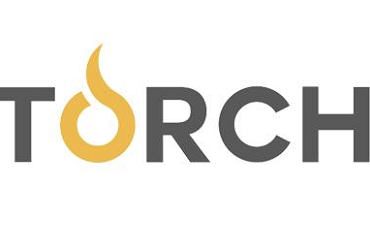Torch.AI Lands $27M in State Tax Incentives to Invest In Growing Its Kansas City Headquarters

Torch.AI is bringing in $27 million in state tax incentives from Kansas to expand its operations in a suburb of Kansas City. The fresh cash influx comes less than two months after the company secured $30 million in new Series A funding that is also aimed at growing its business.
The $27 million tax incentive package was awarded by the Kansas Department of Commerce as part of a commitment from Torch.AI to create almost 500 new full-time jobs over the next five years, including 100 professional workers in 2021 with average salaries over $100,000.
The AI startup, which was founded in 2017, specializes in using machine learning to analyze data “in-flight” or as it is being transmitted via the company’s synaptic mesh technology. Torch.AI's Nexus software platform creates an AI mesh across a user’s data and systems to unify it and increase its surface area for analytics, according to the company. This approach differs fundamentally from data storage where information is placed into repositories which then use machine learning to find and sort usable data. Torch.AI’s synaptic mesh approach claims to eliminate the need to store the data, while enabling customers to analyze it “in-flight.”
Torch.AI has its engineering and technology headquarters in Leawood, Kansas, just outside Kansas City, and the headquarters for its federal contracting operations in Arlington, Virginia.
As part of the tax incentive package, the company will also invest in collaborative workspaces for its employees, including plans to relocate key talent to Kansas City, according to the announcement. Under the expansion plans, the company will hire additional workers for jobs ranging from early career associate engineers and junior data scientists to experienced engineering and sales positions.
“There's a pretty interesting tech ecosystem in Kansas City that I think is almost an untapped opportunity right now,” Brian Weaver, the founder, chairman and CEO of Torch.AI, told EnterpriseAI.
Other well-known companies including Garmin, BATS Global Markets, Cerner Corp. and Hallmark also call the greater Kansas City area their home, said Weaver. And like Torch.AI, those companies and others are drawn there by a diverse and available work force as well as other factors, he added.
“We went through a pretty protracted process to evaluate where are we going to invest in the growth of the business and as evidenced by the package, the plans,” said Weaver. “That was part of the calculus. We've been inspired by the region. That's the big thing.”
The tax incentives coming shortly after the company received $30 million in Series A funding is no fluke, said Weaver.
“We're a bit of a unique animal, because we've done some pretty advanced things and develop some extraordinary intellectual property around machine learning,” he said. “The way we're able to analyze data in flight is pretty special right and because of that we're profitable and growing exponentially. It’s created a really unique business environment for us to raise capital.”
Both investments will help Torch.AI accelerate the continuing growth of its business, said Weaver.
“Certainly part of that investment capital is the creation of a lot of these new jobs for sure, but I would say honestly that the lion's share of the growth is coming from customer demand that we already have,” he said. “The product has been very well received, all the solutions that we have that are focused around the national security mission … and a massive amount of demand from financial services and from critical infrastructure and supply chain [customers].”
As part of the tax incentive package, Torch.AI also be taking additional steps to train and upskill professionals in Kansas City and across the state to prepare them for jobs in Kansas’s burgeoning tech and cyber sector, the company said. To do this, Torch.AI is working with local universities to influence the curriculum to help preparing new IT and data science professionals for these new jobs. Identifying and hiring military service veterans and former service members with technical and operational experience to prepare for these jobs is also a goal of the tax incentives.
“There was a very short moment where we considered expansion to California because of the talent that's there,” said Weaver. “But, as evidenced by other [companies] leaving that state, the talent there is also leaving." The company also considered sites in Virginia and Maryland before deciding to stick with Kansas, he said.
“At the end of the day, when you put it on a piece of paper and you do your pros and cons list and a true analysis, what we found was that the environment in Kansas and the region, and especially the support we got from the folks that put this incentive package together, it was a humbling moment,” said Weaver.
Investing In Tech in The Heartland
Several IT industry analysts told EnterpriseAI that Kansas’ successful move to incentivize Torch.AI to expand its operations in the metro Kansas City area rather than in more established high-tech corridors is an interesting development.
“This announcement shows that the shift of high-tech job creation away from Silicon Valley and other well-established IT industry centers is gaining speed,” said James Kobielus, the senior research director for data communications at data analytics consultancy TDWI. “Torch.AI is betting big both on this region’s ability to train enough data scientists and other AI specialists to meet their needs, and also on their ability to attract this talent from other parts of the country and world.”
Another analyst, Jack E. Gold, president and principal analyst of J.Gold Associates, said that by expanding beyond the traditional high tech corridors of California, Washington, D.C., Virginia and New York, more companies are finding ways to allow employees to enjoy more affordable lifestyles while diversify their talent pools.
“I’m sure that Torch.AI negotiated the best deal of tax and other financial incentives that they could get and had a contest going on at various locations,” said Gold. “Kansas City and many other mid-sized cities are very aggressive when it comes to trying to expand their employee base, especially with good-paying high-tech jobs, and I assume that is what happened here.”
In addition, many mid-sized cities have good secondary educational systems “and this is a way of getting to tap into the professors and graduating students without having to move them,” said Gold. The company’s money will also go farther by moving to diverse locations as the cost of living and pay scales are probably lower, he said.
“No one wants to be paid less, but not having to spend inordinate amounts on cost of living on west coast or east coast locations means you can pay a bit less and still offer the same level of compensation,” said Gold. “Essentially that means you can hire more people for the same budget, and as a startup, that’s important as you’re running on raised funds from investors.”
Karl Freund, the founder and principal analyst for machine learning, HPC and AI with Cambrian AI Research, agreed.
“Kansas is realizing that the government must invest in high tech jobs to avoid a brain drain,” said Freund. “Torch.AI, like all AI startups, will need a lot of talent to become a successful player in this market, which also means that Kansas must invest more in their universities to be competitive.”
In March, San Francisco-based WestCap Group led a $30 million Series A funding round for Torch.AI to help scale its Nexus AI platform that analyzes data on the fly, rather than analyzing it after it is in a storage repository.














